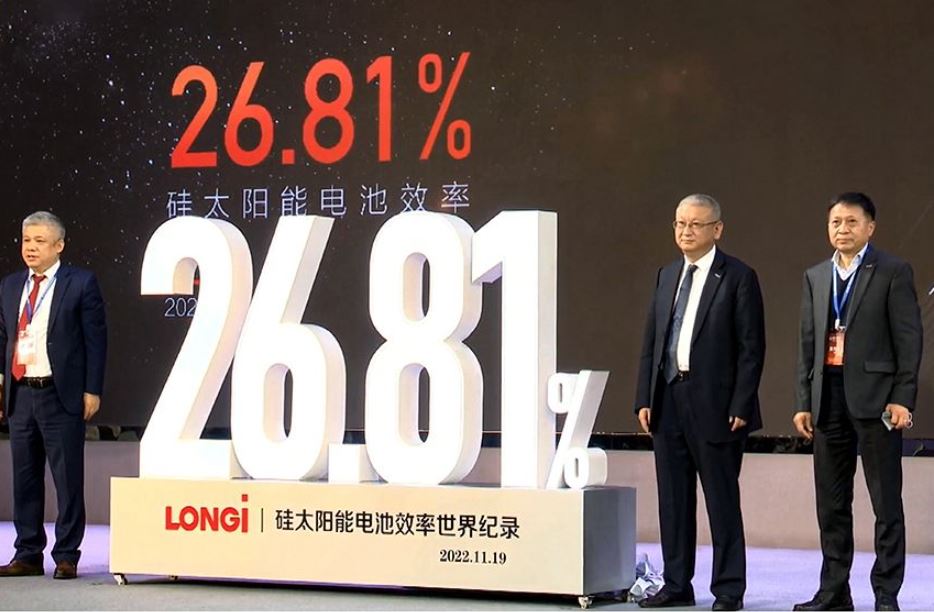Pioneering solar researcher Martin Green has acknowledged Longi’s success after the China-headquartered PV module maker announced it had achieved a new world record efficiency of 26.81% for its heterojunction (HJT) cells on full-size silicon wafers in mass production, a figure certified by the Institute for Solar Energy Research (ISFH) in Germany.
At a ceremony marking the milestone, Green, a Scientia Professor at the University of New South Wales and director of the Australian Centre for Advanced Photovoltaics, said via video that 26.81% is the world’s highest silicon cell efficiency record to date.
“This outstanding achievement will be incorporated into the next version of efficiency tables charting important progress in the photovoltaic industry,” he said.
Longi achieved an efficiency of 25.26% for the same solar cell 18 months ago but said it had made rapid advancements in the past month, increasing HJT cell conversion efficiency from 26.74% to a peak of 26.81%.
The company said the performance enhancement was due to a focus on R&D investment but did not provide any further details.
“Improving efficiency and reducing LCOE (levelised cost of electricity) is the eternal theme in the development of the PV industry,” Longi founder and President Li Zhenguo said. “Cell efficiency is the shining light of PV technology innovation, with every 0.01% improvement the result of enormous effort. Crystalline cells account for nearly 95% of the current market, so their ultimate efficiency illustrates the development potential and direction of the industry.”
The Chinese manufacturer also achieved an efficiency of 26.12% for a gallium-doped, p-type HJT cell based on an M6 wafer in September and a 26.5% rating for a n-type heterojunction cell in June. It also achieved a 25.19% rating for its p-type TOPCon solar cell in July 2021 while a month earlier it recorded a 25.21% efficiency rating for an n-type TOPCon device.
This content is protected by copyright and may not be reused. If you want to cooperate with us and would like to reuse some of our content, please contact: editors@pv-magazine.com.









By submitting this form you agree to pv magazine using your data for the purposes of publishing your comment.
Your personal data will only be disclosed or otherwise transmitted to third parties for the purposes of spam filtering or if this is necessary for technical maintenance of the website. Any other transfer to third parties will not take place unless this is justified on the basis of applicable data protection regulations or if pv magazine is legally obliged to do so.
You may revoke this consent at any time with effect for the future, in which case your personal data will be deleted immediately. Otherwise, your data will be deleted if pv magazine has processed your request or the purpose of data storage is fulfilled.
Further information on data privacy can be found in our Data Protection Policy.